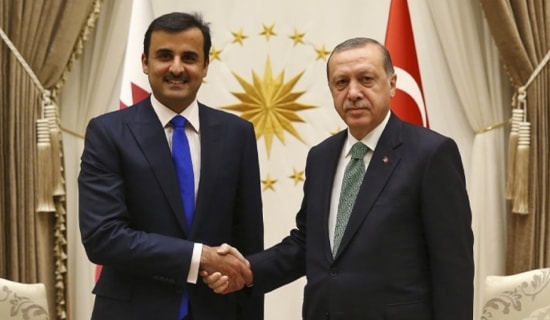The columns of renowned Islamist-leaning Pakistani writer Orya Maqbool Jan in Urdu newspapers are widely read; he also frequently appears on Pakistani television channels to talk about issues concerning Pakistan, Islam and the Islamic world.
Jalaluddin Muhammad Akbar, also known as Akbar the Great, was a Mughal ruler who governed India from 1556 to 1605. He is widely praised for nurturing open debates in his court among the followers of all religions, encouraging free speech and expression.

Below are translated excerpts from an article in Urdu by Orya Maqbool Jan, titled "The Beginning of Secularism and Materialism Among the Muslims of South Asia" accusing Akbar of introducing secularism and materialism to the Indian subcontinent.
"Secularism's Achievement Is That It Does Not Consider Every Religion A Threat To Its Ideas As Much As It Considers Islam [A Threat]"
"[Allah] claims that He guides [i.e. shows the right path to] many people and throws many others into a bottomless ocean of ignorance... and he misleads only those who do not obey (Chapter Al-Baqrah, Verse 26 [of the Koran])."
"In the Pakistan-India subcontinent, Muslims ruled for several centuries. Allah gave them aid and victory, and sustained their hegemony in the entire region. The Mughal Sultanate was a period of the pinnacle of Muslims: capital, wealth, education, resources; they had everything. Of the Mughal Sultanate, the most strong and stable period is considered to be the lengthy reign of Jalaluddin Akbar [1556-1605]. Coming to power at 13 years of age, Akbar was a simple, believing Muslim. He would pray in group [in mosque], sound the Azan [call to prayer], lead group prayers, and wield a broom to sweep the floor of the mosque. He was in awe of the knowledge of [top judicial authority] Sadrus Sudoor Abdul Ghani, and would often visit his home to listen to hadiths [traditions of the Prophet Muhammad]. He enrolled his son Prince Saleem under him, so that he could study Chahl Hadith [a book of hadiths] written by Abdul Rahman Jami.
"He [Akbar] was so influenced by Sultanul Hind Khwaja [Moinuddin] Chishti Ajmeri that he travelled several times on foot [as mark of respect] from Fatehpur Sikri and Agra to Ajmer [where the Sufi mystic Moinuddin Ajmeri Chishti, who lived from 1141 to 1236 CE, is buried]... He established his seat of government at Fatehpur Sikri and there in a secluded room he would spend most of his time in prayers and reflections... It is here that he erected a new building, which was named 'prayer house,' and after every Friday prayer he would sit there and [listen as] the great scholars... of the time would freely debate religious issues. The boundaries of this discussion would be very wide. The religions and creeds of the world would be under discussion here.
"In those days, a movement for the revival of knowledge was underway in Europe which injected a new life into the search for knowledge and progress among the inhabitants there. After benefitting from the knowledge inherited from the Muslims of Spain, Europeans brought about a change in themselves, which gradually took them far away from religion. And then they convinced themselves that all progress in the world was based on cause/effect and that it was humans themselves who created cause/effect. [As far as they were concerned,] there was no need for any incorporeal higher power. These ideas became popular in discussions at the court of Akbar. Abul Fazl and Faizi, who were popular [in debates at Akbar's court] for their free thinking, became closer to him [Akbar]. All these discussions are found in the travelogue of 1613 authored by Sir Thomas Roe [the English diplomat who was ambassador to the Mughal court].
"As a result of these discussions, an idea became established in Akbar's heart that the truth does not belong to any one religion; rather, good points are found in every religion; therefore, Islam cannot be given more importance than other religions. Soon after this conception established in the emperor's heart, Hindu pundits and Christian priests launched a freewheeling discussion on Islam and Islamic tenets. Strangely, the beginning of all of this was made in the name of freedom of expression and without any unbiased research. The emperor and his advisors put every religion to the test of their knowledge and logic, and would immediately reject anything that was incomprehensible in their logic.
"Among ideas that were rejected based on the test of reason were beliefs such as those in the Day of Judgement, auditing [of deeds on the Day of Judgment], Wahi [revelation], Prophethood [of Muhammad and his predecessors] and, the biggest of all, the Rule of Allah. This was the atmosphere which laid the foundation of secularism and materialism among the Muslims of the Pakistan-India Subcontinent. Secularism's achievement is that it does not consider every religion a threat to its ideas as much as it considers Islam [a threat], because all others are simply religions, while Islam teaches the lesson of a complete system of life, culture, politics and economy. It is not easy to attack its system of life, as no better alternative is available..."
"In The Court Of Akbar, The View That The Community Of Islam Was Born Among The Ignorant Bedouins [Of Saudi Arabia] Was Common"
"A historian and Islamic scholar has drawn the picture of the court [of Akbar] as such: 'In the court of Akbar, the view that the community of Islam was born among the ignorant Bedouins [of Saudi Arabia] was common; it is not worthy of a civilized and cultured community. [Islam's ideas about] prophethood, revelation, auditing [of deeds soon after death or on the Day of Judgement], hell and heaven - everything was mocked; the Koran being the words of Allah was doubted; the process of Wahi [revelation] was considered beyond logic; reward and punishment after death became doubted. Although transmigration [of the soul] was believed in, Meraj [the belief that the Prophet Muhammad ascended to the Heavens to meet Allah and returned] was publicly declared inconsistent; questions were raised on the prophet's personality; Ghazwat [wars in which the Prophet participated] were openly questioned. Materialist Islamic scholars stopped writing naat [songs in the praise of the Pprophet] in the copies of their book. No one dared offer prayers in the palace.'
"These were the circumstances under which Akbar ordered that no new mosques be constructed and no old mosques be repaired - to the extent that in his latter days there were no mosques in Lahore, and mosques were turned into stables. These circumstances and questions can be seen even today in the discussions of any materialist forums. Look up an essay by a secular intellectual, visit any website; if you find criticism of any religion, they will be only against Islam. This was the secular context of Akbar in which Deen-e-Ilahi was born [i.e. a religion of god for all established by Akbar incorporating good points from all religions]... But Allah creates some cause or other to guide the followers. To confront this [i.e. Akbar's] stormy invasion [of Islam's ideas], Allah brought forth the great figure [of Sufi and Islamic scholar Sheikh Ahmad Sirhindi, known popularly as] Mujaddid Alf Saani ['Reviver of the Second Millennium'].
"In the entire Subcontinent, there were great Sufis and Islamic scholars, but all of them were silent as a matter of pragmatism [thereby not opposing Akbar's policies]. They too viewed material causes as the epitome of progress. Only two are found to have stood up against the ignorance: one, Sheikh Abdul Qadir Geelani, brother of Makhdoom Musa Martyr; and two, Sheikh Hussain Ajmeri, the trustee of [the shrine at] Ajmer. Both of them were destined for the harshness of prisons. Mujaddid Alf Sani [who rose up against Akbar's multicultural religious policies] was declared by the Islamic scholars, elders and intellectuals of the time to be bereft of realism, unaware of developments in the world, opposed to pragmatism, and closed to reason and awareness. He was ridiculed; he was taunted for not being in tune with the requirements of the era.
"However, history is witness that Allah gave aid to the hand of Mujaddid Alf Sani, and [due to his efforts,] Akbar's Deen-i-Ilahi - despite all resources of the world - died with his death. There is another characteristic of Allah's followers which can be seen in the figure of Mujaddid Alf Sani: Allah says, 'The scorn you earn in the path of Allah is a blessing from Allah.' That is why they thank Allah for being ridiculed and taunted, and tread their path consistently because they believe that it is Allah Who guides and gives success..."
Source: Roznama Express (Pakistan), May 4, 2015.




